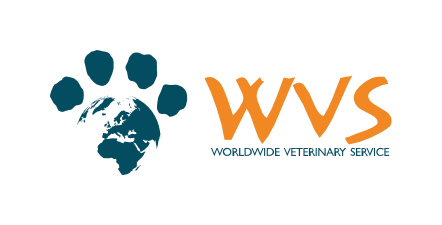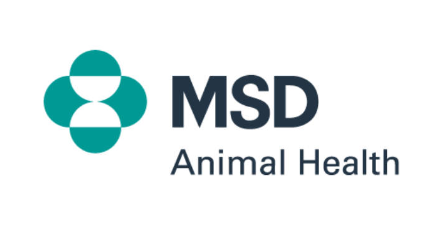World Neglected Tropical Disease Day: Giving hope to communities living with rabies
World Neglected Tropical Disease (NTD) Day takes place annually on 30th January to raise awareness of NTDs and encourage support for their elimination. NTDs are a group of conditions that have simply been ‘neglected’ from the global public health agenda. They can cause serious illness, disfigurement, disability and even death. Rabies is one of them.

Rabies is one of the world's deadliest and oldest known diseases, despite being vaccine-preventable, and it still causes unimaginable pain and suffering today. Rabies remains in much of the world, especially effecting poor areas. Rabies is deadly, but preventable, with you by our side we have the power to eliminate it.

Why has rabies been neglected?
Rabies: a disease of poverty
Rabies disproportionately impacts the world’s most disadvantaged areas. The highest rabies cases and deaths come from Asia and Africa – as dying from rabies becomes more likely as the Human Development Index of a country decreases. In these areas rabies vaccinations and post-exposure prophylaxis (PEP) are often not easily accessible. When bitten by a dog, it is vital to receive PEP, but with the human rabies vaccine often being inaccessible due to distant or cost, people are unable to receive this crucial healthcare.
Weak and inaccurate data
Rabies cases and deaths are massively underreported and systematically ignored. This is partly due to rabies disproportionately affecting the most disadvantaged, vulnerable, and isolated people. While weak or non-existent rabies surveillance systems causes human and canine cases to not be diagnosed. The lack of accurate reporting of data leads to a cycle of neglect, where people are not aware of the rabies problem.
Unable to access veterinary care
For communities who carry this rabies burden dogs are part of the community. Rabies spreads from canines to humans because of unvaccinated dogs. Canine rabies vaccination is uncommon in these communities because they lack accessible and affordable veterinary care, and this leads to the spread of the disease. Vaccinating dogs ensures they are unable to spread rabies to humans.
Lack of rabies education
Rabies has been neglected because many communities are not aware of the dangers of rabies. This is a key reason why people, and most often children, die from rabies. Without knowing how to behave around dogs, how to avoid getting bitten or scratched, or the crucial steps to take for their-saving treatment, these communities are constantly at risk.
Mission Rabies
At Mission Rabies we want to change this, not only are we raising awareness of this cruel and deadly disease, but we have been working to create a rabies free world for the last decade.

While human rabies vaccines are important, they only protect one person, they are costly, and it does not address the source of the problem: canine rabies. By vaccinating dogs, we can protect whole communities and stop the spread of the disease. Alongside vaccinations, we are empowering people with the knowledge to protect themselves and reducing the threat of rabies with testing and tracing.
This World NTD Day, hear more about some of our global projects and how we are working to end rabies.

Our flagship projects
India and Malawi are both flagship projects where we have established permanent teams in-country teams. As two rabies endemic countries, we are working in collaboration with local governments and valued partners, to protect lives. These two projects have come to demonstrate how effective rabies control can be implemented at scale and create a measurable improvement to the lives of the local community.

Back to where it began
Mission Rabies launched in India – the world’s hotspot for rabies. Goa was identified as an ideal location to set the standard for rabies elimination across India. In collaboration with local governments, our work in India has developed to encompass a comprehensive vaccination, education and surveillance components. Ground-breaking progress has been made in Goa, demonstrating that canine rabies elimination is feasible in India through mass dog vaccination. Goa became the first India state to be declared a ‘Rabies Controlled Area’ in 2021, a huge milestone for rabies control in India. Our strategy now focuses on community engagement and intensifying surveillance, especially at the State border.
Find out more about our work in Goa here.

Malawi
Malawi reported the highest number of child rabies deaths from a single hospital record than any other institution in Africa in 2015. Since then, we have been working in Malawi. It remains one of the world's poorest countries and a hotspot for rabies. The success of our programme in Blantyre - with the establishment of permanent in-country teams - has enabled us to expand our reach into neighbouring districts of Zomba, Chiradzulu, Thyolo, Balaka, and Chikwawa. Both human and canine rabies cases have reduced in the areas in which we work. We are continuing our work in Malawi and expanding into new areas to reach even more communities.

Looking forward to the future
2024 was a year of great success and growth - over a million dogs vaccinated against rabies and over 3.5 million educated on rabies prevention. Our teams continued pushing on in our flagship countries, and have continued to expand our work in India, with our first mass vaccination campaign in Mumbai. Alongside this, we continue to deliver outreach projects, conducting programmes in global rabies hotspots - returning annually to ensure herd immunity. In October, we delivered Asia's largest rabies drive, vaccinating 229,488 dogs in Cambodia over just two weeks. With you by our side in 2025, we can expand this work and give hope to more communities around the world.

Upcoming projects
Mumbai, India
We are back in Mumbai and surrounding cities to deliver another mass vaccination drive in January and February. Building upon our success of last year, where 26,951 dogs were vaccinated. This is part of a broader national plan in India to eliminate human rabies deaths by 2030. Keep an eye out for updates on this exciting campaign.

Goa, India
To maintain Goa as a ‘Rabies Controlled Area’, we are running a mass vaccination drive in February and March. Over one week we will be providing life-saving protection to the local communities in this stunning region. We still have a few final places remaining for volunteers.
Find out more information here.

Join our mission this World NTD Day
Walking Challenge
This World NTD Day challenge yourself by getting involved in our 99,000 steps walking challenge. There is still time to sign up!
Subscribe
Do you want to hear more from us? Subscribe to our emails to hear updates on our global projects and volunteering opportunities.
Donate
Give hope to communities living with fear of rabies this World NTD Day and show them that we will continue to fight for a rabies free world by donating.



